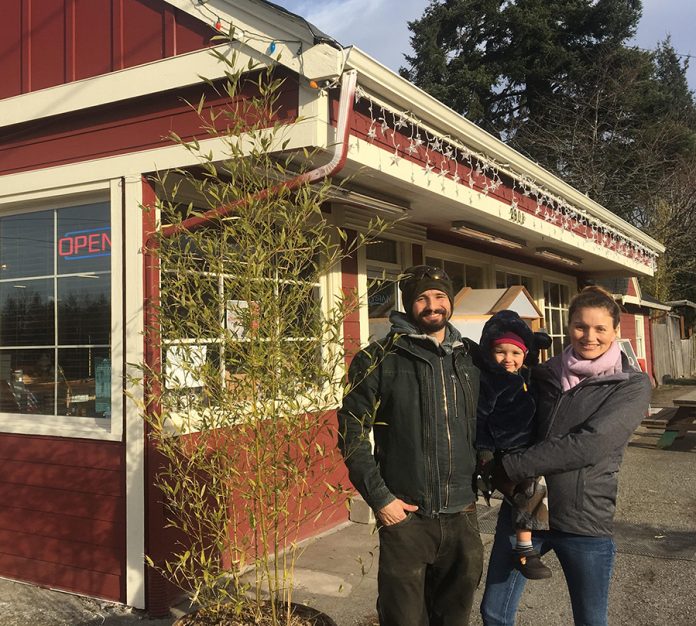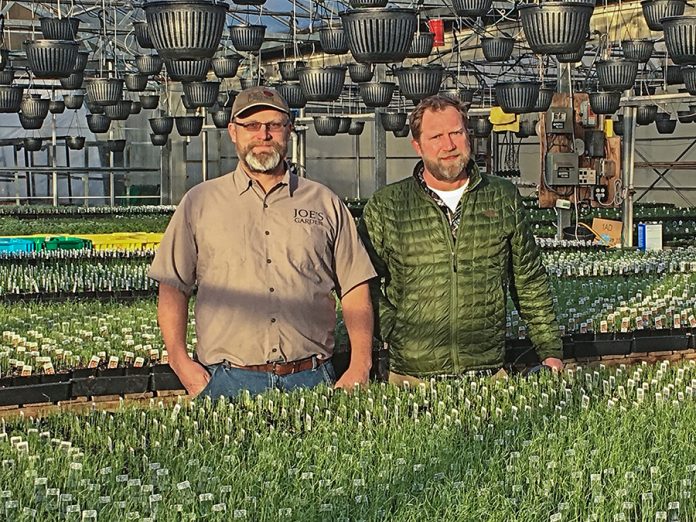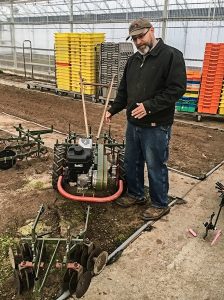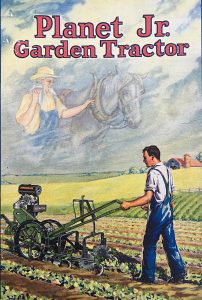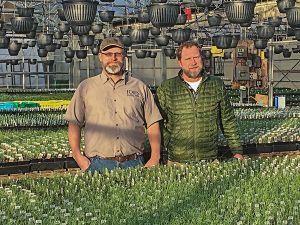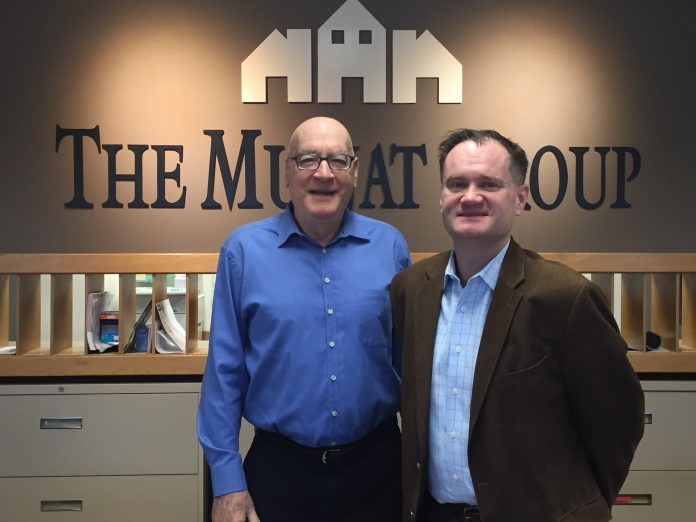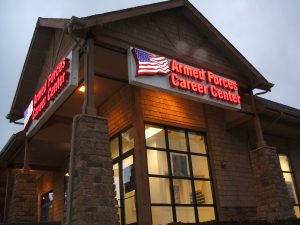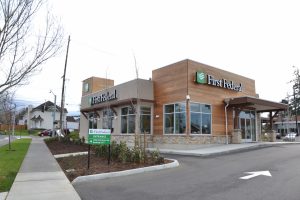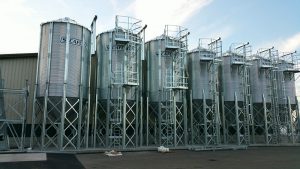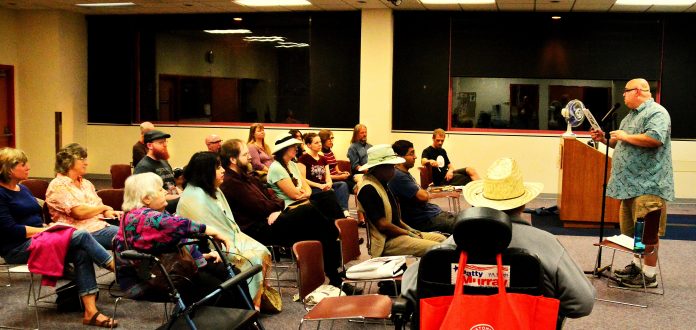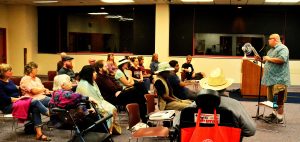Noah and Megan Westgate live just two miles down the road from the Rome Grocery store they purchased four years ago. As a highly food conscious couple, (Megan is the executive director of the Non-GMO Project and has served on the Community Food Coop board for seven years), the Westgates couldn’t pass up the opportunity to revitalize the original building and reintroduce healthy food options for themselves and their neighbors.
Noah points out, “It was almost a food desert out here, which is ironic, because you have all these amazing organic farmers and small farms and yet the closest markets for them were those located twenty to thirty minutes away in Bellingham.”

Before Mount Baker Highway was paved, Rome Grocery store began providing foodstuffs for county residents. The old Rome township and store were named after the Rome apple orchards that proliferated in the area. The Rome Grocery building was moved to its’ current location in 1915 from Goshen.
Originally a dance hall, the building was rolled on logs and moved by old-fashioned horsepower seven miles up the road. Noah replaced the original fir flooring with hand-milled lumber cut from salvaged old growth fir trees. Although he wishes they could have refinished the original flooring, the boards were too worn from wear and tear and years of dancing feet.
Back then, all the stores’ inventory was organic by default (all food was) and there was no need for labels on packaged food. In those days all beef was grass fed and all eggs were fresh and free range. Mt. Baker had lodging and famous actors and socialites, as well as many locals, who enjoyed the slopes and made the mountain a destination. Westgate saw the “sparkle” beneath the layers of the run down building and expired food labels. “If it would’ve been a functioning store, we probably wouldn’t have been interested in buying it. It was the fact that it was on life support; that’s where the opportunity was,” he recounted.

The opportunity to introduce quality name brands and alternative ingredients to some of the store’s historically not so healthy staples was a fine balance to strike. By 2016 Rome Grocery had a made to order kitchen that offered freshly sourced food options.
Noah emphasized, “Everyone has taste buds and, for the most part, everyone wants the highest quality and best tasting food.” Some of the clientele at the store have slowly been influenced by exposure to new options. “Everyone deserves access to safe and healthy food choices,” Megan added. I feel very privileged that I have the opportunity to support this both globally and locally.”
Rome Grocery can cater to a customer’s preferences on certain products because of low overhead. This lends a personalized touch to what may often seem like an impersonal shopping experience at bigger chains. “We’re able to work with vendors that are too small to supply the Food Coop or some of the bigger stores,” Noah explained.
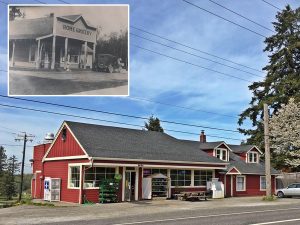
Only a few people need to like a product for the store to keep it stocked on the shelves. “At the end of the day, no one really wants to drive to Costco or Walmart,” he said. “The few dollars folks might save are just as well spent when they’re reinvested in local businesses and the families that fuel them.”
Sarah Klein lives on Kelly Road and worked at Rome Grocery for a little over a year. Her Earthen Home bath and beauty products are just some of the local, handcrafted products offered at the store, exemplifying the integrity of high-quality ingredients that make for good retail. Klein said, “The homey, friendly atmosphere created in the store generates a feeling of connectedness. In my opinion, Rome Grocery is such a successful business due to the dedicated management and owners, variety and quality of products, and an amazingly strong and caring community.” Rome Grocery brand honey is just another example of the circular economy established by locally sourced products and the personal relationships that result.
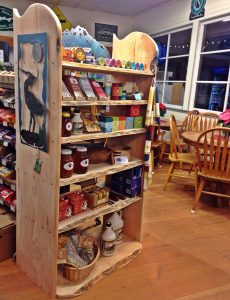
The store has evolved and the Westgates’ activism has been the undercurrent of a social experiment of sorts- running a small-scale grocery store that straddles the divide between organic foods and their GMO and preservative laden cousins. The dynamics of supply and demand and the politics of food are something the Westgates have been careful to navigate without imposing dogma.
“We have a strong policy of no political discussion here at the store,” Noah said. “We want to serve the entire community, and it’s not a business that would work if we exclude people who believe or don’t believe certain things. We really want the store to be a safe and friendly place for everyone regardless of whom you voted for or what church you attend.
Noah points out that people vote with their dollars everyday and that eating is a continually intimate choice of what to consume. In his experience, price consciousness can give way to the advantages of quality and taste. “Butter is butter is butter,” he said, “but when you look at where the butter comes from or how it was produced, it becomes something else. Ultimately, everyone is experimenting with different levels of healthy or unhealthy living.”
Admittedly, the Westgates have learned a great deal owning the store. Noah’s gratitude to his loyal staff and the stake they play in the business was palpable. “There’s myself, our family, the greater community, friends and tourists, as well as the glue that holds the store together- our core staff,” Westgate said.
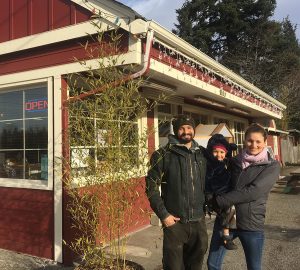
That same deep sentiment regarding food’s origins and the importance of community is deeply engrained in the store’s identity. The revitalized energy Rome Grocery’s team has cultivated will honor the diversity and agricultural legacy of this community’s homegrown store for years to come. Megan concluded, “Rome Grocery’s been serving this amazing community for over a hundred years. Hopefully our work here will help insure that it’s here for at least a hundred more.”





























